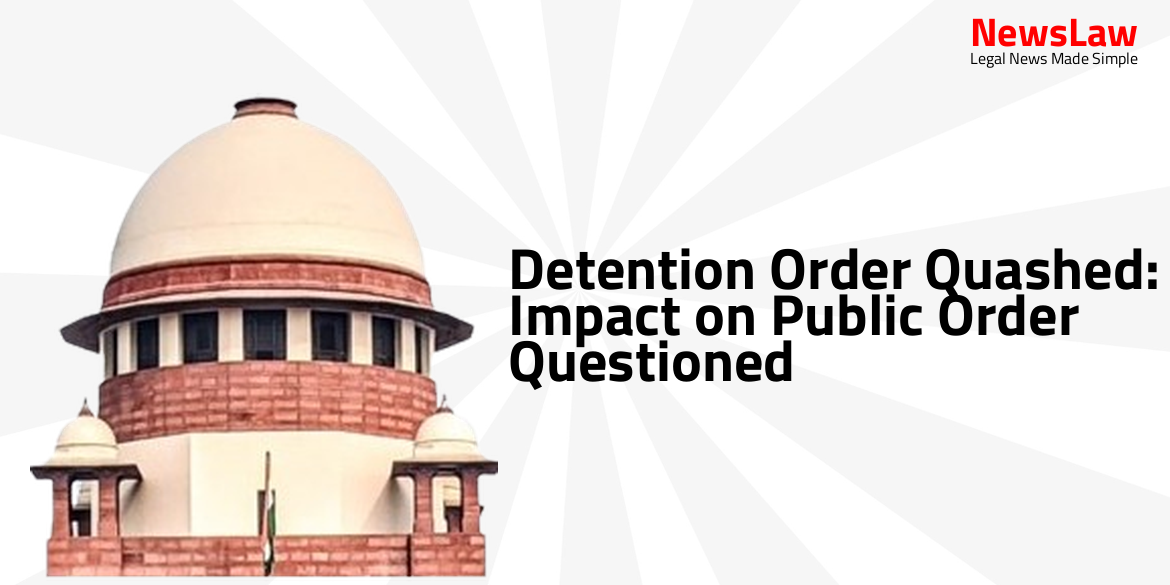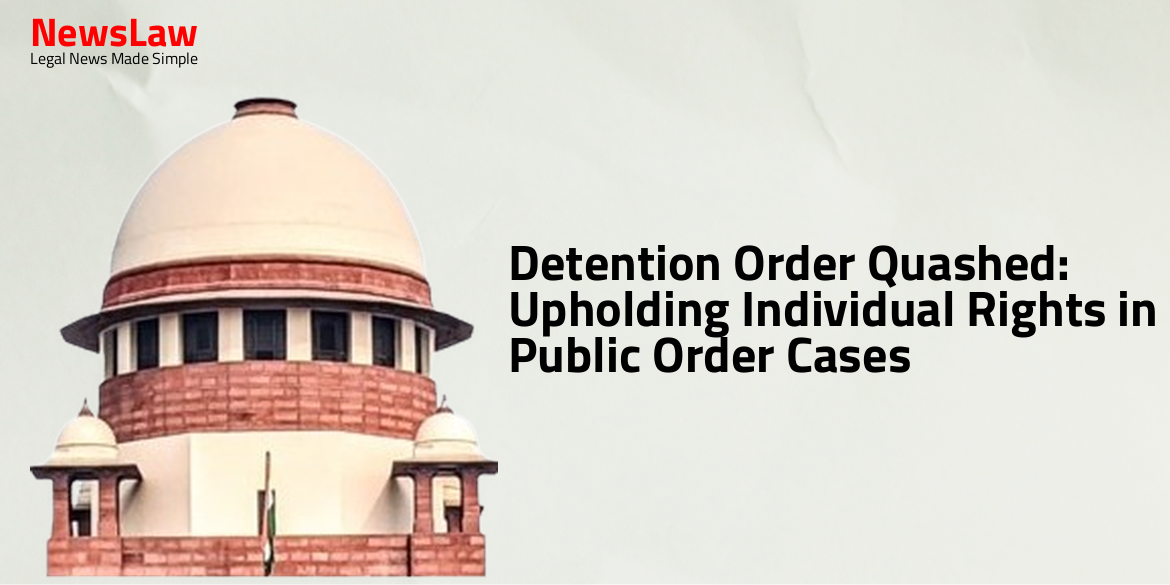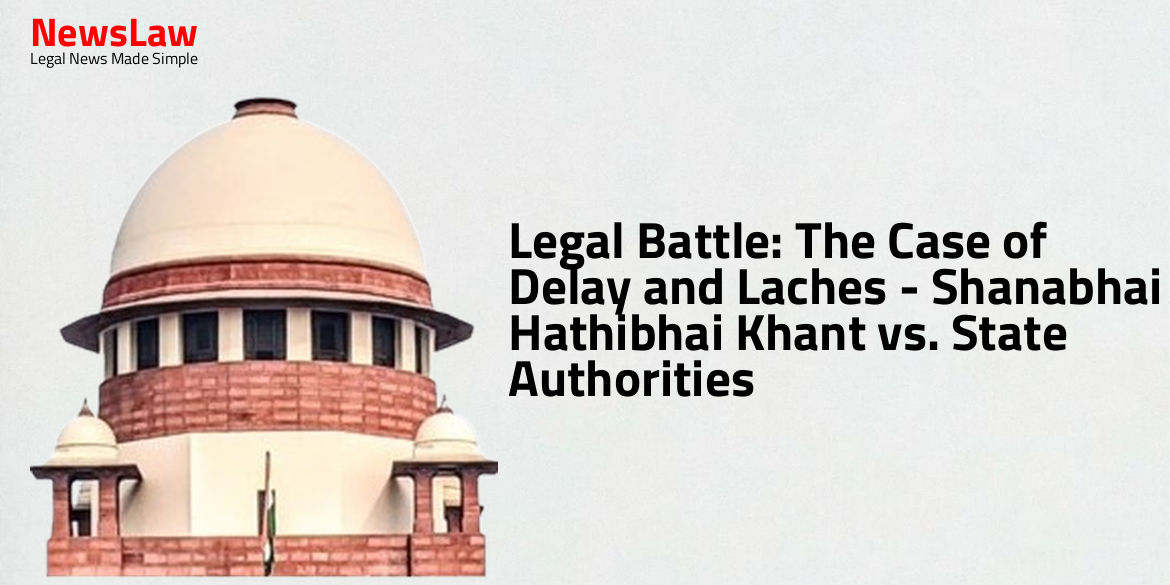In a recent judgment by the Gujarat High Court, the validity of a detention order has been called into question regarding its impact on public order. The case revolves around the activities of the detenue and whether they truly pose a threat to public order in Ahmedabad. Stay informed about the legal nuances of this significant decision.
Issue
- The issue in this case involves a substantial question of law as to the interpretation of the Constitution of India or any order made thereunder.
Arguments
- Learned advocate for the detenue argues that the grounds of detention lack nexus to ‘public order’ but are related to the registration of the offense.
- The argument is focused on the detention being solely a matter of law and order, rather than a threat to public order.
- The advocate emphasizes that the grounds of detention should directly link to issues of public order to be valid.
- The detenue’s representative highlights that the registration of the offense does not inherently signify a disturbance of public order.
- The Detaining Authority passed the order of detention based on the detenue’s antecedents and past activities, aiming to prevent him from acting in a manner prejudicial to public order in Ahmedabad.
- The State Counsel argued that the detenue is a habitual offender whose activities impact society at large, justifying the detention order.
- The detenue’s alleged offenses are deemed prejudicial only to law and order, not public order, under Section 3 of the Act of 1985.
- The crucial question is whether the detention order under the Act of 1985 is legally sustainable given the circumstances.
- The Detaining Authority’s decision hinges on preventing the detenue from engaging in activities detrimental to public order, considering his past actions.
Analysis
- The detaining authority failed to establish that the petitioner’s activities as a bootlegger adversely affect or are likely to affect public order
- The incidents of beating by the petitioner, although true, do not impact public order
- Merely being a bootlegger does not warrant preventive detention unless activities adversely affect public order as per the Act
- The authority wrongly concluded that the detenue’s activities were prejudicial to public order based on four prohibition cases
- The offenses for which the petitioner was granted bail do not disrupt public order
- While the petitioner may be punished for the offenses, they do not disrupt the community’s normal pace of life
- Distinction between ‘law and order’ and ‘public order’ explained.
- Mere disturbance of law and order not sufficient for action under preventive detention Act.
- Contravention of any law must affect the community or the public at large to be considered as affecting public order.
- Detention order based on registration of two prohibition offences not necessarily related to public order.
- Serious and aggravated forms of disorder directly affecting the community fall under public order.
- Offences alleged against the petitioner did not create feelings of insecurity, panic, or terror among the public.
- Alleged activities of the detenue did not adversely affect public order.
- Material on record was not sufficient to support adverse impact on public order.
- Subjective satisfaction of detaining authority not legally valid.
- Petition allowed as the order of detention could not be upheld.
Decision
- Detenue to be set at liberty forthwith if not required in any other case
- Rule made absolute accordingly
- Order dated 30.12.2023 passed by the respondent authority is quashed
Case Title: SANJAY BALDEVBHAI SOLANKI Vs. COMMISSIONER OF POLICE, AHMEDABAD CITY
Case Number: R/SCA/3442/2024



